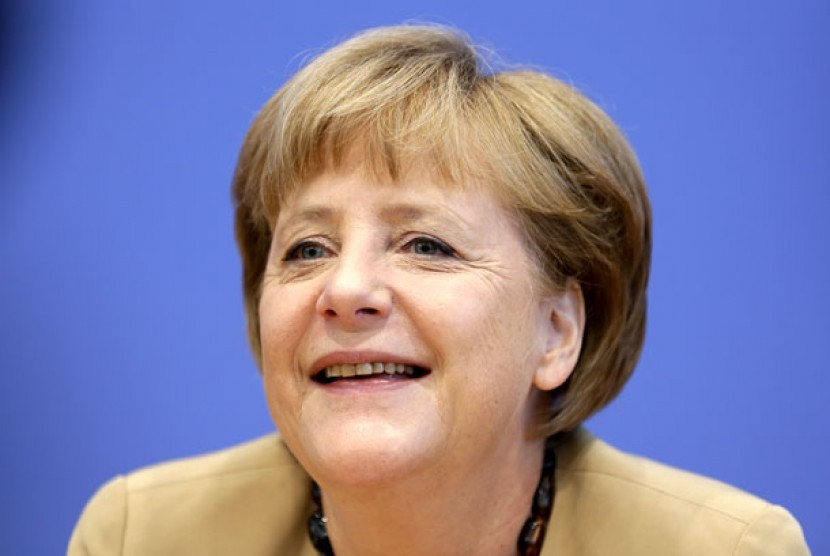REPUBLIKA.CO.ID, BERLIN -- German Chancellor Angela Merkel called on Thursday in her New Year's address the influx and integration of refugees "an opportunity for tomorrow", asking Germans to keep united and not to follow racist hatemongers.
For the first time, Merkel's New Year's speech, which centers around the current refugee crisis this year, has been translated into Arabic. The version with Arabic subtitles is set to be available online following the TV broadcast on Thursday evening.
The year of 2015, which sees Germany taking in 1 million asylum seekers, has been unusually challenging, said Merkel in the address broadcasted on German ZDF public television.
But she stressed that efforts to cope with the challenges would all be worth it in the end because "countries have always benefited from successful immigration, both economically and socially".
"It is important that we don't allow ourselves to be divided," said Merkel.
She urged German people not to follow "those who, with coldness or even hatred in their hearts, claim the right to be called German for themselves alone and seek to exclude others."
Merkel has gained both praise and criticism at home and abroad for her decision to open German borders to a record wave of refugees, about half of them were from war-torn Syria.
Faced with opposition in her party camp and popular concerns, she has vowed to reduce the influx next year, including convincing other European Union(EU) members to take in more refugees and an EU deal with Turkey to better protect the bloc's borders.
Merkel thanked on Thursday volunteers, full-time helpers, police, soldiers as well as the staff of German authorities for their "overwhelming and truly moving wave of spontaneous helpfulness" amid the refugee wave.
Looking to 2016, the German leader said "there is no question that the influx of so many people will keep demanding much of us. It will take time, energy and money."
But she recalled that her country had mastered many big challenges in the past such as reunification a quarter-century ago and benefited from a "robust and innovative" economy.
In order to achieve a successful integration, German people should learn from the mistakes of the past, Merkel noted. "Our values, our traditions, our sense of justice, our language, our laws, our rules," she added, apply "to all who wish to live here."
In the end, the chancellor repeated her famous attitude toward the refugee crisis: "We can do it, because Germany is a strong country."
"I am convinced that, if handled properly, today's great task presented by the influx and the integration of so many people is an opportunity for tomorrow," she said.


